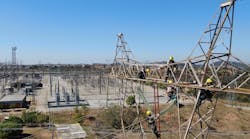The Austin, Texas-based smart community research firm, Pecan Street, has released for public use a dataset containing one year of one-second interval consumer electricity data.
The data was collected through Pecan Street’s volunteer residential research network, and includes measurements from 40 homes for whole home electricity use, solar generation, electric vehicle charging, HVAC, major appliances and other in-home circuits.
The dataset is free for non-commercial use by university-sponsored researchers through Pecan Street’s Dataport website (www.dataport.cloud) and can be licensed for commercial use.
“The resolution of this one-second data has given us unprecedented insight into the complexity of managing the electricity use of a modern customer,” said Pecan Street chief technology officer Bert Haskell. “We think it will spur new research and accelerate product development for companies that need to test and verify their electricity products and services.”
One-second data is particularly helpful with the precise separation of individual loads inside a home. Being able to extract this additional information will enable the remote diagnosis and maintenance of solar panels, electric vehicle charging system, HVAC performance and household appliances. Such resolution is also necessary for the development of energy management systems that automatically manage the flow of electricity from the grid, solar panels, electric vehicle batteries and home energy storage.
“One-second data gives you a high-definition snapshot of a home’s energy pattern, far more insightful than one-hour or even one-minute data,” said Pecan Street water and data director Grant Fisher. “Nothing in this dataset is simulated or disaggregated. It’s actual measurements of every circuit in these homes, every second for a year.”
Because of the complexity of such frequent data collection and the massive number of records collected from each home, Pecan Street developed new wireless “Internet of Things” data acquisition and storage techniques, robust data backhauls, and server-side data storage and manipulation that lay the groundwork for future collection and use of one-second data.
“Our vast residential research network and working with big data sets helped us invent a data infrastructure that we think will spur innovation far beyond the walls our lab,” Haskell said.


